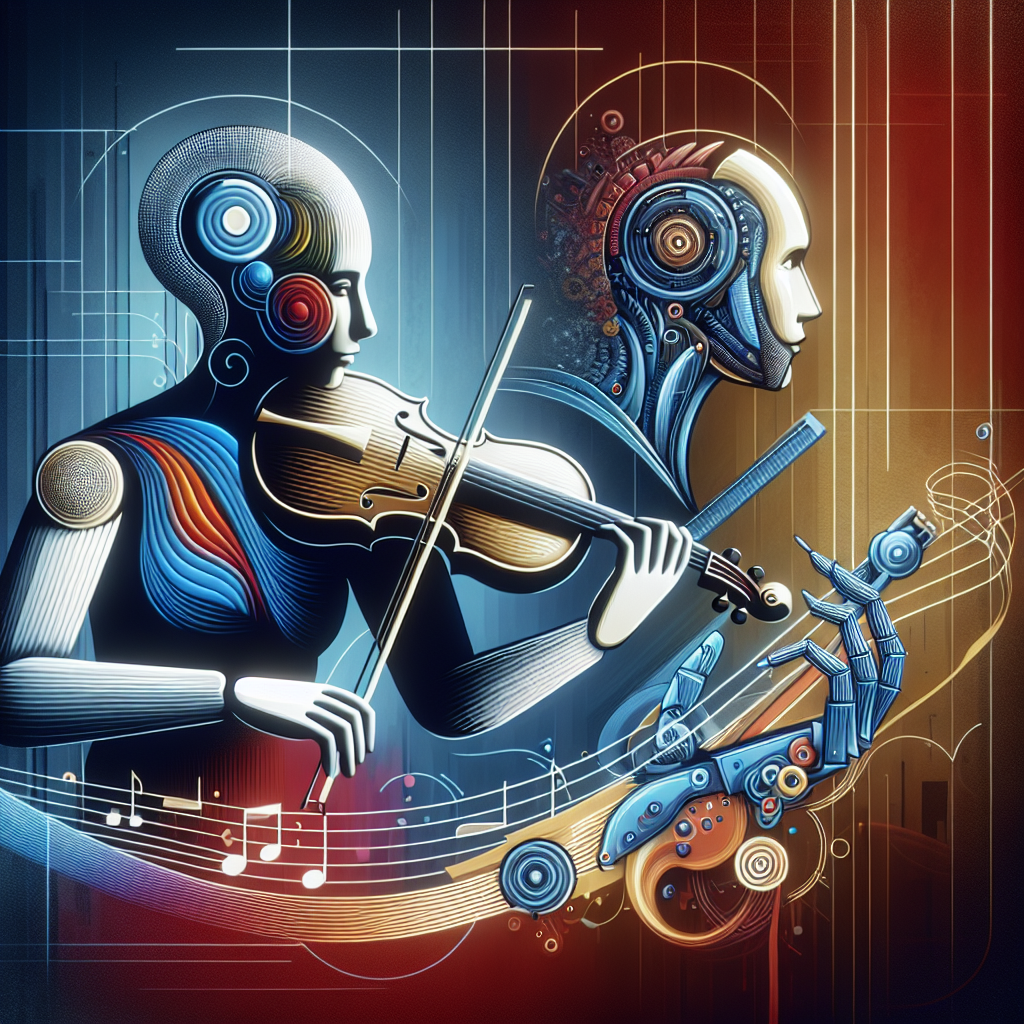In recent years, artificial intelligence (AI) has made significant advancements in various fields, including music. AI technology is revolutionizing the way music is created, produced, and consumed, leading to a new era of creativity and collaboration between humans and machines. This article explores the impact of AI on the music industry and how it is reshaping the creative process.
One of the most significant ways AI is transforming the music industry is through the use of generative algorithms that can compose music autonomously. These algorithms can analyze vast amounts of music data to create original compositions in various genres and styles. By leveraging machine learning techniques, AI systems can learn from existing music and generate new pieces that sound authentic and compelling.
One example of a successful AI music composition platform is Amper Music, which uses AI algorithms to create custom music tracks for users based on their preferences and requirements. This technology allows musicians, filmmakers, and content creators to access high-quality music production without the need for expensive studios or professional composers.
Another area where AI is making a significant impact is in music production and sound design. AI-powered tools can analyze audio data and provide recommendations for mixing, mastering, and editing music tracks. These tools can help musicians and producers streamline their workflow, improve the quality of their music, and experiment with new sounds and effects.
AI is also being used to enhance the listening experience for music fans. Streaming platforms like Spotify and Apple Music use AI algorithms to personalize music recommendations based on users’ listening habits and preferences. This technology helps users discover new artists and genres while also providing a more tailored music experience.
In addition to composition, production, and curation, AI is also being used in live music performances. AI-powered instruments and software can analyze and respond to a musician’s playing in real-time, creating interactive and dynamic performances. This technology allows musicians to experiment with new sounds and effects on stage, blurring the lines between human creativity and machine intelligence.
Overall, AI is opening up new possibilities for creativity and collaboration in the music industry. By leveraging the power of machine learning and data analysis, musicians, producers, and listeners can explore new sounds, styles, and ideas that were previously out of reach. The fusion of human creativity and AI technology is leading to a new era of innovation and experimentation in music.
FAQs:
Q: Can AI replace human musicians and composers?
A: While AI technology has made significant advancements in music composition and production, it is unlikely to completely replace human musicians and composers. AI systems lack the emotional intelligence and creative intuition that humans possess, making them better suited for assisting and augmenting human creativity rather than replacing it entirely.
Q: How can musicians benefit from using AI technology?
A: Musicians can benefit from using AI technology in various ways, such as generating new music compositions, improving production quality, personalizing music recommendations, and enhancing live performances. AI tools can help musicians streamline their workflow, experiment with new sounds and styles, and reach a wider audience through personalized music experiences.
Q: Is AI technology accessible to all musicians?
A: AI technology is becoming increasingly accessible to musicians of all levels, thanks to the development of user-friendly platforms and tools. Many AI-powered music composition, production, and recommendation services are available online for a wide range of budgets and skill levels. Musicians can explore and experiment with AI technology to enhance their creative process and expand their musical capabilities.
Q: What are the ethical implications of using AI in music?
A: The use of AI in music raises ethical concerns related to copyright, ownership, and authenticity. As AI systems can generate original compositions based on existing music data, questions arise about the ownership of AI-generated music and the rights of human composers. Additionally, there are concerns about the potential for AI to imitate or plagiarize existing music, leading to issues of authenticity and originality in the music industry. It is essential for musicians, producers, and AI developers to consider these ethical implications and establish guidelines for responsible use of AI technology in music.
In conclusion, AI technology is transforming the music industry by enabling new forms of creativity and collaboration between humans and machines. From composition and production to curation and performance, AI is reshaping the way music is created, consumed, and experienced. As AI continues to evolve and improve, it will undoubtedly play a more significant role in shaping the future of music, leading to a new era of innovation and experimentation in the industry.

